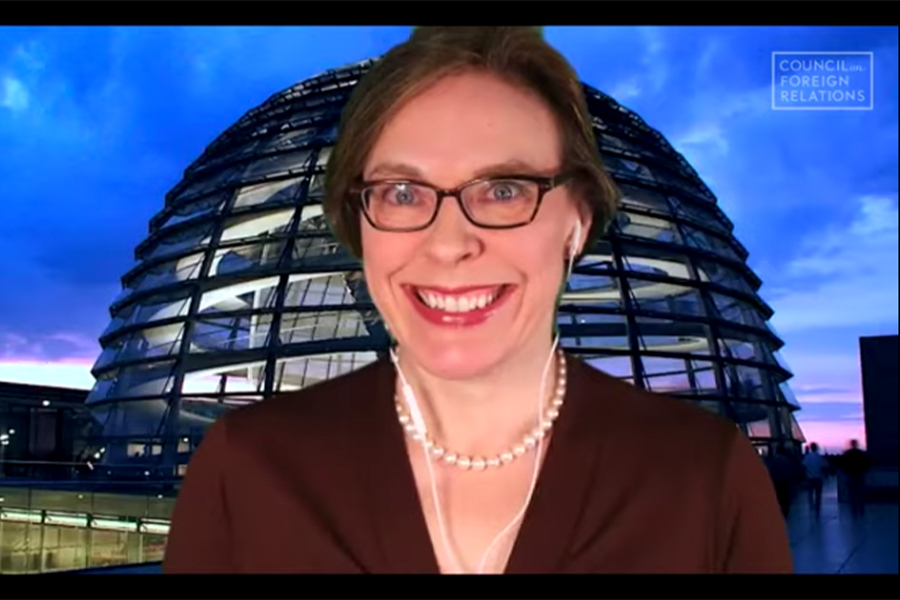Council on Foreign Relations Hosts Kissinger Center’s Dr. Sarotte for Talk on The Future of Europe

The Kissinger Center’s Marie-Josée and Henry R. Kravis Distinguished Professor of Historical Studies, Dr. Mary Elise Sarotte, participated in the Council on Foreign Relation's meeting on the future of Europe, moderated by Dr. Michael Mandelbaum, also of Johns Hopkins SAIS. They were joined by Dr. Anna Grzymala-Busse of Stanford University and Wolfgang Ischinger, former German Ambassador to the U.S. and Chairman of the Munich Security Conference.
Their discussion focused on the future of the transatlantic relationship under a Biden presidency, commenting on Biden's foreign policy team's experience and predicting Biden to be a more “transatlanticist” president than his recent predecessors. Dr. Grzymala-Busse and Mr. Ischinger remarked that Europe was looking forward to a more stable American foreign policy and the likely return of multilateral diplomacy.
The panelists also addressed the challenges currently facing the transatlantic relationship. All of the panelists agreed that the Trump presidency had led to a certain level of mistrust and uncertainty among the U.S' European allies. Dr. Sarotte emphasized that the current transatlantic relationship is not the same as it was in 2016, when Biden was Vice-President, and that the U.S. and Europe will have to work together to address a multitude of issues, including Brexit, the backsliding of democracy in some EU countries, and NATO allies' defense spending.
The panelists then took questions from members of the audience and discussed certain topics further including: how the US and Europe may work together to ensure peace in the Balkans, how China will likely be the most significant challenge facing the transatlantic relationship in the future, trends towards illiberal populism in Europe, the continuing importance of the OSCE, and how Europe and the US can work together to address challenges facing Africa. The panel ended on a hopeful note, with audience members and the panelists agreeing that the future of the transatlantic relationship looks promising.